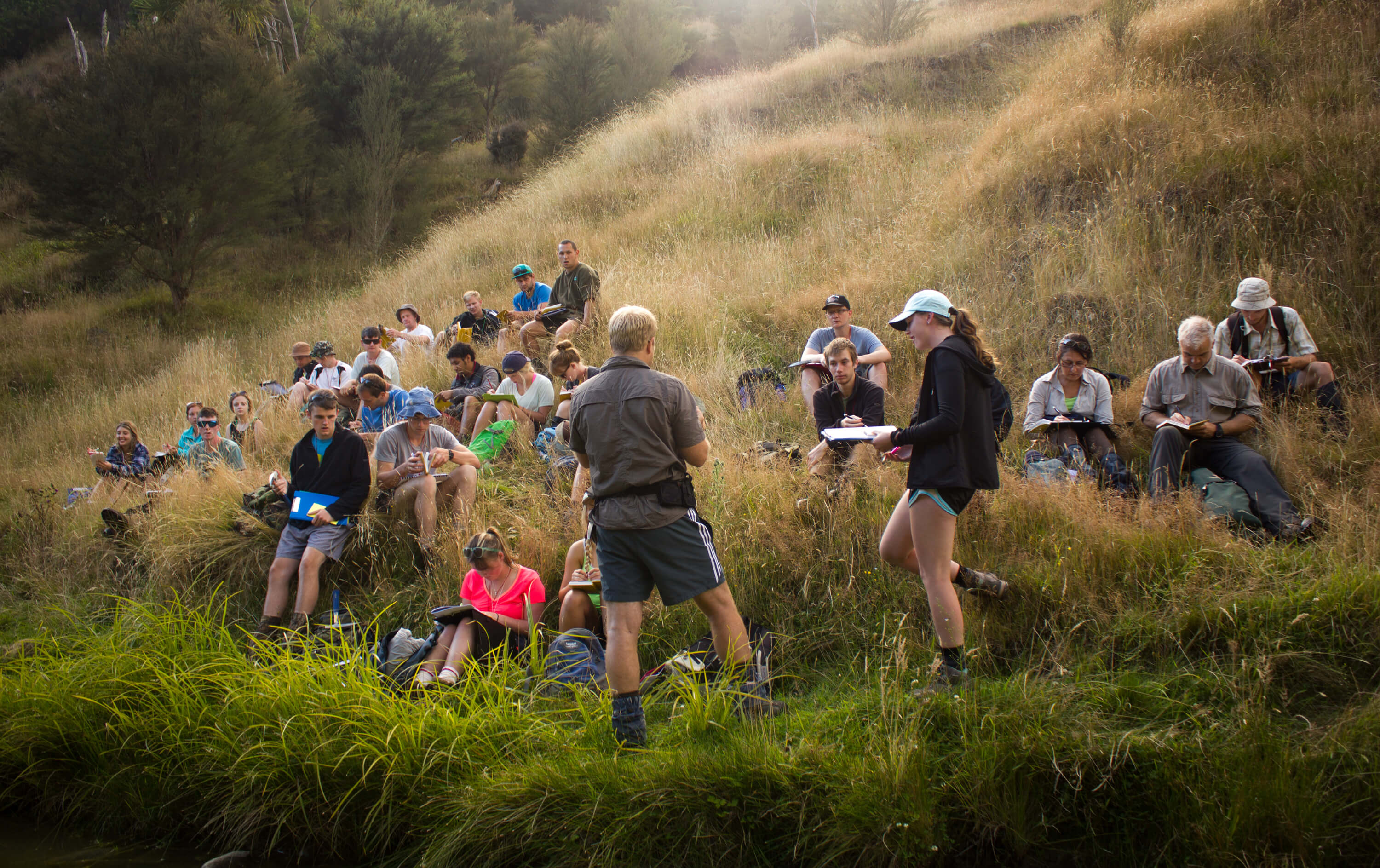

Climate and the Environment –
Earth’s natural resources are under increasing pressure. Learn the causes of environmental problems and discover pathways to make our actions more sustainable.
Climate change, resource management, and the state of our natural and built environments are growing concerns to humanity. These issues are complex and require a mix of science, policy, mātauranga Māori, and broad community engagement to solve.
Study natural or social science—or a combination of both—to learn about the science and human influence behind these challenges, and how to identify solutions to make sure the planet is sustainable for future generations.
Variety and opportunity
Choose Environmental Science and discover how humans connect with and affect the natural environment. You’ll gain an understanding of this relationship by drawing on a range of sciences including biology, chemistry, geography, maths, and physics.
Or consider the human geography aspects with Environmental Studies. This major takes you beyond the ‘pure’ sciences to include social, cultural, and economic perspectives on the environment. Your studies might reach in to a range of disciplines including courses in economics, geography, law, Māori studies, political science, public policy, and sociology.
If you’re interested in both natural and social science, then consider the Master of Climate Change Science and Policy, a one-year postgraduate programme designed to give you the necessary combination of policy and science knowledge to address climate change.
Exploring the environment up close
Real-world connections
Wellington is the science capital of New Zealand. The University has well-established links with many science organisations and government agencies, including the Department of Conservation, NIWA, GNS Science, and its own Antarctic Research Centre.
We also endeavour to build and maintain relationships with iwi, hapū, and community organisations with whom we do research. There are opportunities through summer placements and in course activities to engage with these organisations.
Learn from the best
Our academic staff are highly regarded internationally, and many are acknowledged each year with research and teaching awards in their specialist areas.
After you graduate
Become directly involved in solving our environmental problems.
With a major in Environmental Science you will be prepared with the mathematical and scientific background necessary to be an environmental scientist. Our graduates are highly sought after for careers in this challenging area, as more and more industries realise the importance of reducing our impact on the environment.
An environmental scientist may work as an adviser in either the public or private sector, looking at issues such as freshwater management or sustainability.
As an Environmental Studies graduate, you might find work in local or national government as a policy analyst or in an advisory or education role. There are also possibilities for graduates in the private sector in jobs such as a consultant or a planner.
Many graduates have gone on to work in places including the Ministry for the Environment, the Environmental Protection Authority, the Ministry of Foreign Affairs and Trade, and regional or city councils.

Wellington is at the heart of New Zealand’s scientific and political life. It is home to Crown Research Institutes, major scientific organisations, and governmental departments like NIWA, GNS Science, the Institute of Environmental Science and Research, and the Ministry of Primary Industries. On the outskirts of the city you’ll find plenty of natural resources to keep you occupied, such as Zealandia, Otari-Wilton’s Bush, and Matiu/Somes Island.
Support for students
Te Herenga Waka—Victoria University of Wellington is a welcoming place with great student support. There are all sorts of resources available to help you get the best out of your time at university.
Next
People

